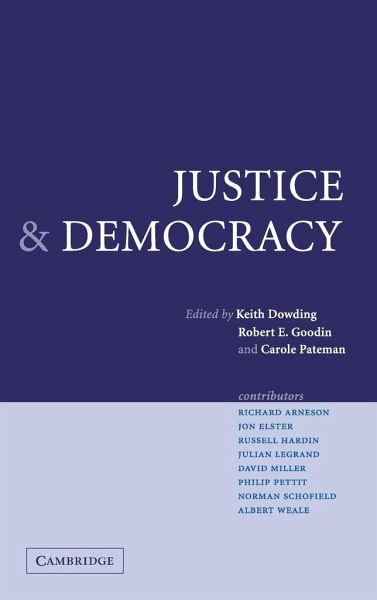
Justice and Democracy
Versandkostenfrei!
Versandfertig in 1-2 Wochen
110,99 €
inkl. MwSt.
Weitere Ausgaben:

PAYBACK Punkte
55 °P sammeln!
'Justice' and 'democracy' have alternated as dominant themes in political philosophy over the last fifty years. Since its revival in the middle of the twentieth century, political philosophy has focused on first one and then the other of these two themes. Rarely, however, has it succeeded in holding them in joint focus. This volume brings together leading authors who consider the relationship between democracy and justice in a set of specially written chapters. The intrinsic justness of democracy is challenged, the relationship between justice, democracy and impartiality queried and the relati...
'Justice' and 'democracy' have alternated as dominant themes in political philosophy over the last fifty years. Since its revival in the middle of the twentieth century, political philosophy has focused on first one and then the other of these two themes. Rarely, however, has it succeeded in holding them in joint focus. This volume brings together leading authors who consider the relationship between democracy and justice in a set of specially written chapters. The intrinsic justness of democracy is challenged, the relationship between justice, democracy and impartiality queried and the relationship between justice, democracy and the common good examined. Further chapters explore the problem of social exclusion and issues surrounding sub-national groups in the context of democracy and justice. Authors include Keith Dowding, Richard Arneson, Norman Schofield, Albert Weale, Robert E. Goodin, Jon Elster, David Miller, Phillip Pettit, Julian LeGrand and Russell Hardin.




